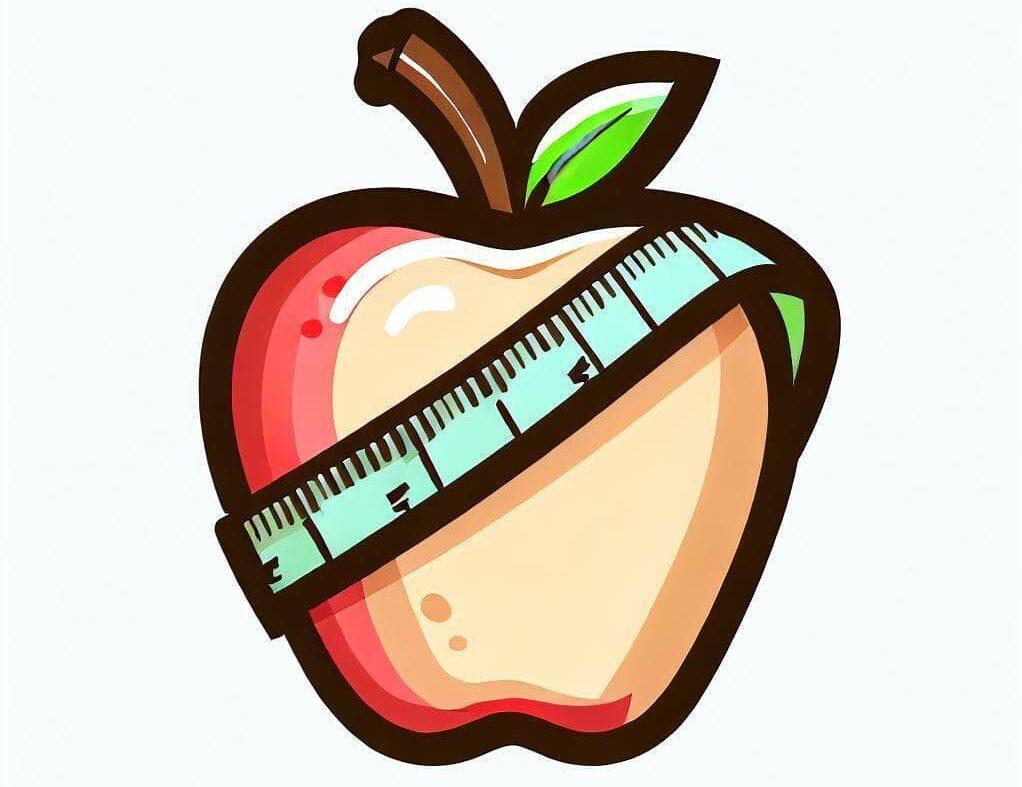How Many Meals Should You Eat Per Day for Weight Loss?

You wake up to the gentle morning light streaming through your window, and as you stretch out the sleep from your limbs, your stomach grumbles, reminding you of the first decision you face every day: to eat breakfast or not.
You’ve been on this weight loss journey long enough to hear all sorts of advice – “Eat six small meals a day,” some say, while others swear by intermittent fasting.
It’s a daily conundrum that has you wondering, “How many meals should I really be eating to lose weight effectively?”
How Many Meals Should You Eat Per Day for Weight Loss?
The answer is… it’s up to you! I can’t sit here and prescribe that you “must eat a certain number of meals a day to lose weight.” It doesn’t work that way.
What’s crucial for weight loss is ensuring you stay within your defined caloric deficit range.
For instance, if your Basal Metabolic Rate (BMR) is 2,000 calories, to lose weight, you need to consume fewer calories—let’s say 1,500 calories.
You must ensure you stay within this limit every day, so the additional 500 calories your body requires are drawn from your stored energy, like fat.
How you manage this is entirely up to you and your individual lifestyle. If you thrive on having two large meals a day, totaling 750 calories each to meet your daily goals, that’s perfectly fine.
Alternatively, if you prefer smaller, more frequent meals throughout the day, that’s equally valid.
The important thing is not to exceed your calorie limit. The number of meals you have should be determined by what you find most comfortable and sustainable for your lifestyle.
Also Read: Does Meal Timing Matter For Weight Loss?
The Science Behind Meal Frequency For Weight Loss
The idea that many dietitians and nutritionists support is that eating small and frequent meals helps control your hunger and may even speed up your metabolism.
This concept comes from the belief that every time you eat, your body needs to work to break down the food, which burns calories in a process known as the thermic effect of food.
Therefore, the thinking is that if you eat more often, your body is always digesting, which means it’s always burning calories.
I used to believe this was true until I saw evidence that proved it wrong.
Several studies have looked at eating many smaller meals versus fewer larger meals and found that there is no significant difference in how fast your metabolism works or how much fat you lose.
The truth is, the total amount of food you eat determines how many calories you burn during digestion, not how often you eat.
Whether you eat three meals or six smaller ones, if the total amount of food is the same, the number of calories burned through digestion doesn’t really change.
Also Read: The Worst Habits For Losing Weight
Is Eating Breakfast Good for Weight Loss?
No, there is no particular benefit of eating breakfast for weight loss.
Many people believe that breakfast is the most important meal of the day and that eating it gets your metabolism going, helping you burn more calories all day.
However, I want to make it clear that there is no evidence that breakfast jump-starts your metabolism and helps you lose weight.
It’s not really about whether you eat or skip breakfast, but what you eat for breakfast that matters.
Eating a healthy breakfast can stop you from getting too hungry and grumpy as the day goes on.
However, if you’re not into breakfast, it’s completely fine to skip it and have your first meal at lunchtime.
In fact, skipping breakfast and eating only lunch and dinner is a kind of intermittent fasting.
This has its benefits. If you fast from dinner the night before until lunch the next day, your body has to use stored food energy, which means your fat.
Also, contrary to what many think, your hunger doesn’t just keep increasing, which means you won’t necessarily eat too much at lunch or dinner. This can help you naturally eat fewer calories.
But if you like having breakfast in the morning, that’s totally okay too. You can still reach your weight loss goals, whether you have breakfast or not.
Ultimately, the best eating pattern for weight loss is the one that you can stick to and that fits your lifestyle.
Also Read: Are Cheat Meals Helpful or Harmful For Weight Loss?
How to Plan Your Meals For Weight Loss?
When planning your meals for weight loss, here are the steps you need to follow:
Calculate How Many Calories You Should be Eating Everyday
Before you think about any food, the first thing you need to figure out is how many calories you need to cut from your daily diet.
When you want to lose weight, you need to eat fewer calories than your body uses. This creates what’s called a calorie deficit. When there’s a calorie deficit, your body starts using stored fat for energy, which leads to weight loss.
To find out how many calories you need, you can use a simple BMR (Basal Metabolic Rate) formula or an online calculator.
Just put in your details, and it will tell you how many calories you should eat to either stay at your current weight or lose weight.
Go Grocery Shopping and Plan out Your Meals For The Whole Week
Once you decide, “I need to limit my calorie intake to, let’s say, 1700 a day,” this gives you a reference point to plan your meals.
If you’re going to eat three meals a day, you can spread them out to about 500 – 600 calories each.
Or, you can choose to have a smaller breakfast and a bigger lunch and dinner—it’s completely up to you.
But once you have your number, start planning what you will eat from Monday to Sunday for breakfast, lunch, and dinner. I know it’s a lot of work, and this is where a nutritionist can really help.
Planning your meals in advance gives you clarity on what you should eat and leaves little room for spur-of-the-moment bad choices that can mess up your healthy eating plan.
For example, if you’ve already decided what you’re having for dinner today, you can’t just say, “I’m so hungry, I feel like eating a pizza.”
You can’t because it’s already decided, plus you’ve spent money and bought the ingredients for whatever was planned.
So you’ll take it much more seriously when it’s not only planned but also backed up by your grocery shopping.
Use Apps for Tracking
Calorie-tracking apps can be really useful. They give you a good idea of how much and what kind of food you should be eating in each meal.
Apps like Yazio and MyFitnessPal are great starting points when you’re trying to manage your diet on your own (and no, I’m not sponsored by these apps!).
What I really like about these apps is that they show you different recipes that you can adjust to fit your calorie needs.
For example, in Yazio, there’s a section that lists dinner recipes under 600 calories.
This is great when you’re tired of eating the same things all the time. You can try new recipes and still stay within your calorie limit.
Plan Hunger Managing Strategies
If you’re someone who gets really hungry and feels like you need to eat a lot to be full, you need to come up with ways to manage your appetite.
This can help you avoid eating too much during meals or turning to junk and processed foods when you’re hungry between meals.
The approach depends on your situation. For example, if you find yourself getting hungry between lunch and dinner, you might want to spread your meals out from three to four, including a snack.
You could even go up to five or six smaller meals, depending on how hungry you are and how much it bothers you.
Remember, your total calories for the day should stay the same; you’re just breaking them up into smaller, more frequent snacks based on your hunger levels between main meals.
Another strategy could be to drink something before your meals to help curb your hunger so you don’t overeat.
Managing your hunger should be a key part of your meal planning, depending on how often you get hungry and how it impacts you emotionally.
Dont neglect Physical Activity
Even though you can lose weight by eating fewer calories, what we really want is healthy weight loss, not just seeing a lower number on the scale.
Your body weight includes muscles, organs, fat, bones, and water. Our goal is to lose the extra fat you’ve built up over time and gain lean muscle. This is the healthiest way to lose weight.
To achieve this, you need some kind of exercise routine. This could be going to the gym, working out at home, cycling, jogging, swimming, etc. It should include both cardio and resistance training.
So, plan your meals with your physical activities in mind. You might need to adjust your meals based on your exercise routine, especially if it’s intense, to have something before or after your workout.
Also Read: What Not To Do When Exercising For Weight Loss
Conclusion
No, it doesn’t matter how many meals you eat each day for weight loss.
What’s more important is knowing your calorie deficit number and making sure you stay within that range. How you manage that fits entirely with your lifestyle.
Plan your meal times and frequency in a way that works for you and doesn’t feel like a chore.
